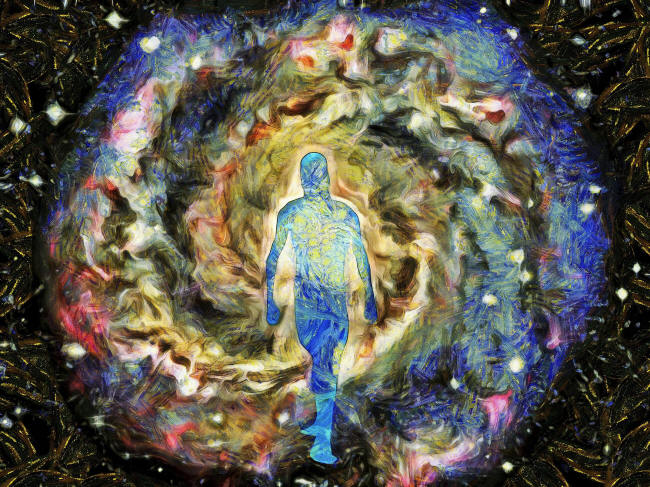|
by Stav Dimitropoulos is another matter entirely.
Could aliens exhibit empathy, self-awareness, love, hate, or fear...?
From the sharp, angular features
of Captain Spock to the dinosaur-like neck and big, expressive eyes
on E.T. the Extra-Terrestrial, these beings embody logic, deep
wisdom, and emotional connection.
But could such beings really exist...?
What that consciousness might look like is another matter entirely.
To answer these questions, consider panpsychism, an ancient cosmic theory that suggests consciousness could be a ubiquitous feature of the universe, akin to gravity or charge.
This idea, dating back to ancient Greek philosophers like Thales and Plato, has seen a resurgence in the 21st century as mainstream scientific approaches struggle to fully explain consciousness.
...says Koch, who's currently serving as a meritorious investigator at the Allen Institute, a bioscience nonprofit based in Seattle, Washington.
That means panpsychism might help us solve the "hard problem of consciousness":
But first, we need to rethink our assumptions about
the world that have been in place for the past 400 years, before the
scientific revolution, when theories like panpsychism were more
mainstream.
Theoretical physicist and cosmologist Paul Davies, Ph.D., suggests
that alien consciousness could be radically different from human
consciousness, operating on principles fundamentally foreign to us,
making communication a significant challenge.
Despite these challenges, mathematics could be our common language, he says. There's also the speculative possibility of something like telepathy - which panpsychism doesn't rule out.
Consciousness, Goff argues, goes beyond what physical sciences can explain.
Interestingly enough, other experts agree.
Psi phenomena - paranormal events such as telepathy, precognition, or psychokinesis that point to the existence of abilities beyond the scope of current scientific understanding - could play a key role in understanding alien consciousness, says Dean Radin, Ph.D., chief scientist at the Institute of Noetic Sciences.
Still, some experts are outright skeptical of panpsychism.
Seth Shostak, Ph.D., a senior astronomer at the SETI Institute, argues consciousness evolved simply because it aids survival.
Shostak also believes intelligence - particularly the kind that leads to communication - needs a structured system to thrive in.
Given the universe's vastness and age, intelligent life capable of communication, or what we perceive as conscious life, might be "rare" (sic)...
Those are the "truly intelligent" ones.
|


